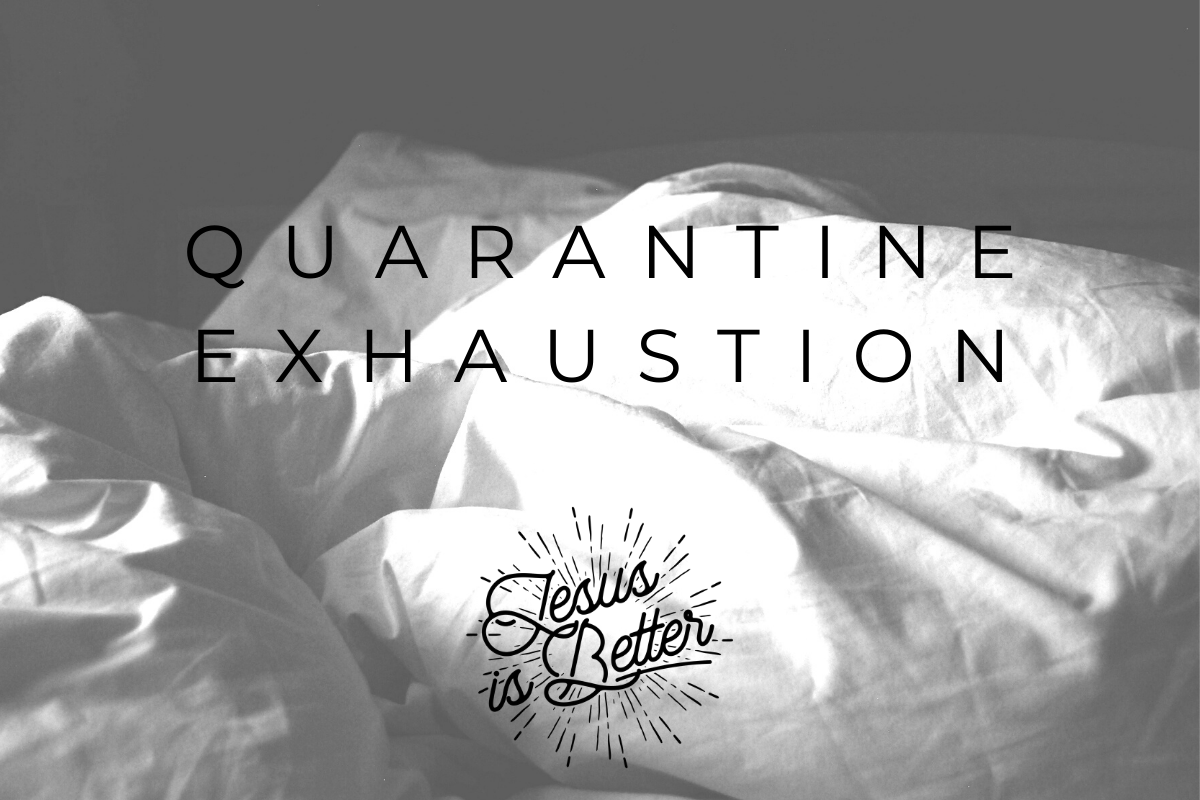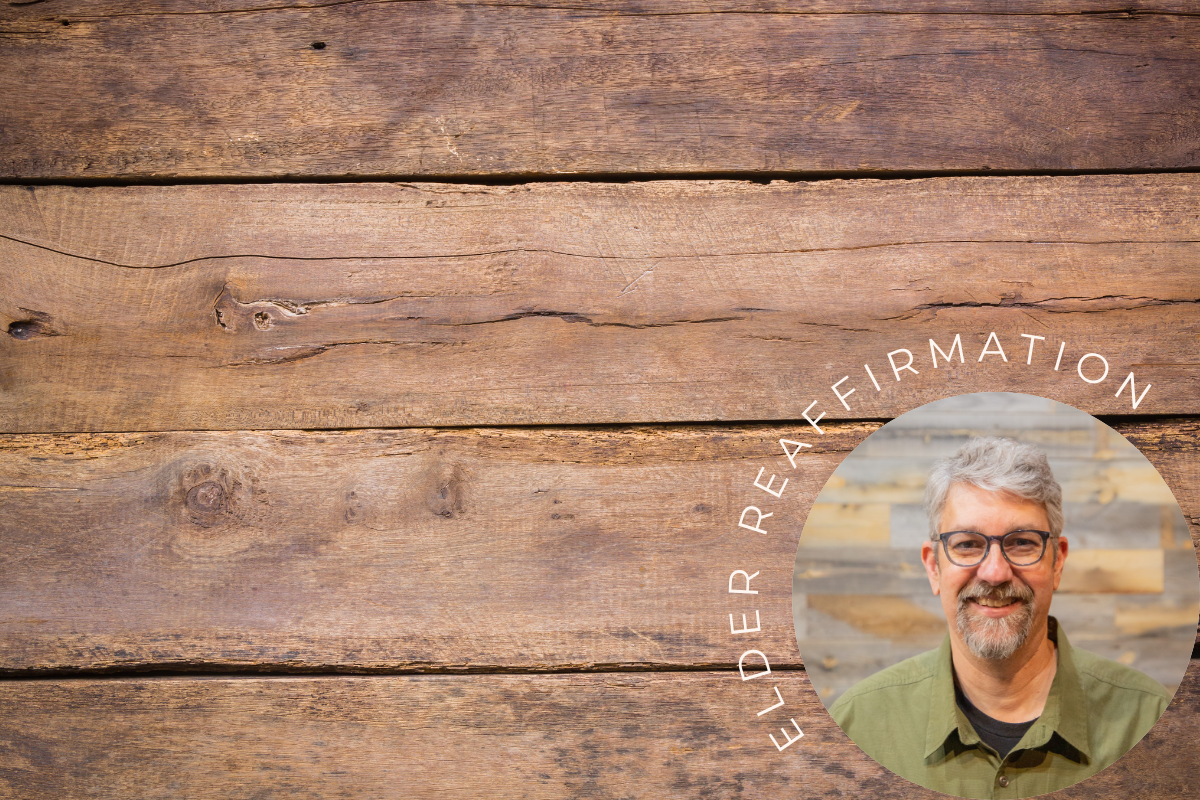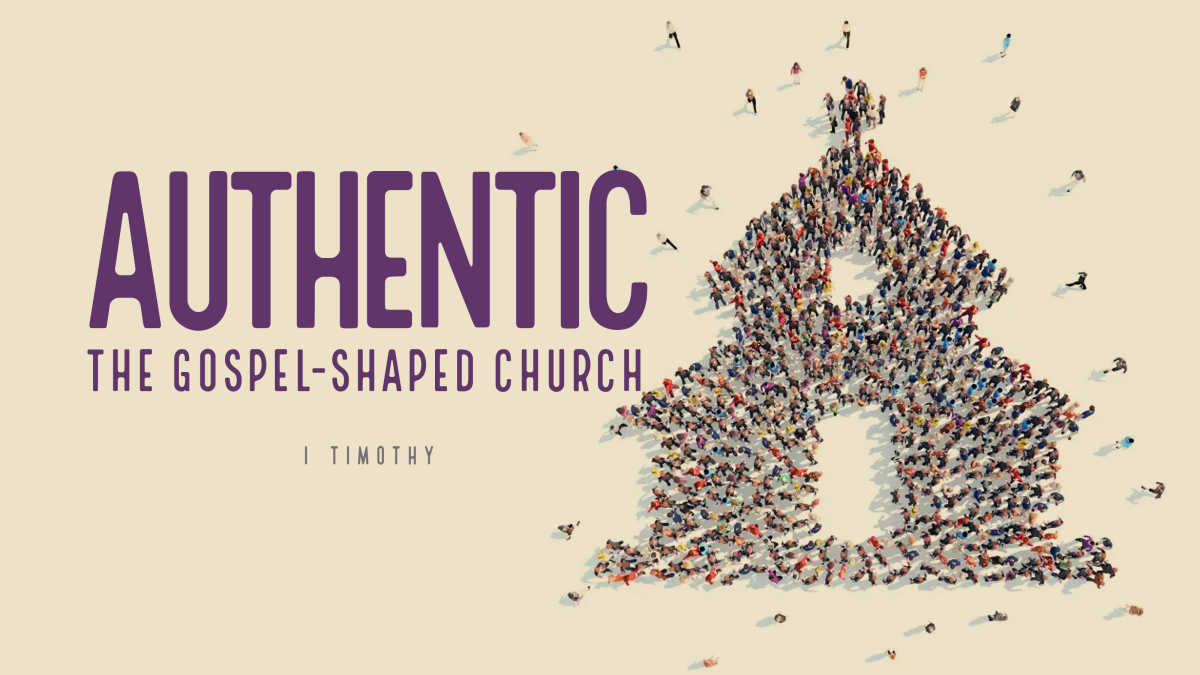In this article, Pastor Andy teaches us about a foundation we can lean into as we suffer through exhaustion.
“One morning, as Gregor Samsa was waking up from anxious dreams, he discovered that in bed he had been changed into a monstrous verminous bug.” (The Metamorphosis, 1).
Aren’t you a little like Gregor? Imagine that it’s your bedtime. It was a rough day in quarantine. Work was meh. Didn’t leave the house. You’re not even sure that you accomplished anything today, but you feel exhausted. Bed will fix this, you think to yourself. A good night’s rest and everything will be better. Tomorrow morning, you’ll see. You put on your PJs, brush your teeth, and snuggle down for some beauty rest.
But you wake up a bug.
Okay, it isn’t that extreme, but something is most definitely not right. Because, as the morning beams of consciousness creep into your mind, you realize it didn’t work. Nothing is better. You are still exhausted and now you need to get out of bed. Work starts in five minutes. I guess I’ll work in my PJs and skip breakfast again.
Quarantine Exhaustion
There is something particularly exhausting about our new rhythms in COVID-19. Zoom meetings, text messages, social distancing, PPE, isolation, boredom.
Any one of those does not seem uniquely draining, but it has been eight weeks of living a virtual reality, and the toll adds up each day. Recovery to your old, energetic self seems impossible without everything going back to normal. When will it end?
Living from a Foundation
As Christians, we need to live from a foundation that will not crumble in times of trial and suffering. We need to build our house of faith on a rock (Matthew 7:24). There is but one rock who teaches us all that we need for life and godliness, and his name is Jesus. In his Word, we can find at least four critical aspects of the foundation he created that have to do with how we handle our exhaustion.
We need to confess truth as Christians, as it is a vital part of believing the truth and living out of it. In this context, confess does not mean to admit a sin (though that will undeniably be a part of what happens). Rather, the type of “confessing” we are leaning into is the acknowledgement or declaration of a truth. So, as you read, read the headings out loud and confess these truths to your own weary soul.
Confess: My Exhaustion is a Form of Suffering
In the book of Job, Job suffers, among other things, from exhaustion. He speaks early in the book and says, “When I say, ‘My bed will comfort me, my couch will ease my complaint,’ then you scare me with dreams and terrify me with visions, so that I would choose strangling and death rather than my bones,” (7:13–14). Job’s bed and his couch were supposed to be places of rest and comfort. But instead of rest and comfort, they act as reminders of his suffering.
Do you have that sense today? Have you tried resting, only to feel deeper exhaustion? Greater anxiety?
As Christians, we understand that exhaustion is not merely a physiological response to our environment, but that it is also a spiritual reality resulting from the fall in Genesis 3. Because it is a spiritual reality, experiencing exhaustion does not merely call for a new diet, a new routine, another vacation, or spending more time on our beds (Job makes it clear that these things will not work!). It calls for us think more deeply about our meaning—that God designed us to seek rest in him.
Exhaustion is not just a problem to overcome. It can be an intense, nearly unbearable form of suffering. However, as Job models for us, suffering invites us to seek God and know him better.
Living from our foundation invites us to confess that exhaustion is a form of suffering and it has spiritual roots. God, give us eyes to seek you in our weariness!
Confess: I Am Exhausted, but Not Alone
Maybe what is more troubling than our actual exhaustion is how alone we feel in it. We always tend to think we are alone in our suffering. In the words of Elijah, “I have been very jealous for the Lord, the God of hosts. . .And I, even I only, am left!” (1 Kings 19:10).
Do you feel like Elijah? Do you feel like you are the only one exhausted right now? Like no one could understand? That you, you alone, are left?
Those feelings are understandable. Elijah’s feelings are understandable. But Christian, you are not alone. Many of God’s people have felt this same exhaustion, and he is keenly aware of each person’s weariness. We’ve already read about how Job felt it and how Elijah felt it. David writes, “You have kept count of my tossings; put my tears in your bottle. Are they not in your book?” (Psalm 56:8). Imagine God with a bottle of all your tears and a book with your every sorrow. While we might feel alone, as Christians we are never truly alone.
Living from our foundation invites us to confess that God is with us, especially in our suffering. God, be with us today!
Confess: Jesus Cares about My Rest
When the disciples returned from being sent out by Jesus, Jesus said to them, “Come away by yourselves to a desolate place and rest a while,” (Mark 6:31).
Now, you might say to this, “Jesus, I am already in a desolate place, which is why I am exhausted.”
You make a good point. But this misses the bigger reality. Here in Mark 6, we see that Jesus cares about his disciple’s rest. He doesn’t just say, “Time to suck it up, you mere mortals.” He says, “Come; rest a while.” More than this, Jesus invites all people to his rest, “Come to me, all who labor and are heavy laden, and I will give you rest,” (Matthew 11:28).
Even in the desolate places, we have the sacred ability to go to him who gives rest. He delights in our belief that he tenderly cares for us in our exhaustion.
Living from our foundation invites us to confess that Jesus cares about your rest. God, help our unbelief!
Confess: I am Created, not Creator
The root sin of all humanity is that we want to be the Creator, rather than creation. This desire is a toxin more deadly than any virus. It is particularly lethal to any sense of rest God wants to give us. Living in quarantine, this toxin has likely been slowly increasing in potency without you realizing it.
Are you trying to control your health through your decisions? Are you trying to stay connected at work, with family, and to church through technology? Are you trying to be more productive than ever?
None of these are bad things. As your pastor, I want you to make wise health choices, connect with people, and be productive. But ever so slightly, day by day, as we are isolated, anxious, and constantly plugged in to our devices, our souls begin to drink the poison, “I am the captain of my fate, the master of my soul.”
You might say, “No, no, no, I would never say that I’m the captain of my fate. I’m more like an assistant to the captain.”
Psalm 115:3 tells us, “Our God is in the heavens; he does all that he pleases.” Friend, you can trust in the good character of God. But remember that you are not in control of your life, even a little bit. God is in the heavens, and he does all that he pleases. The best antidote to this toxin in our soul is to return to our foundation.
Living from our foundation invites us to confess that we are creatures, and not the Creator. God, help us to rest in you.
Taking Steps on this Foundation
When we trust in our foundation, something amazing happens: we can take steps forward, however feeble, no longer afraid that we, or the earth below us, will collapse. Understanding how God’s truth supports us gives us strength to do what he asks of us today (which will vary widely) no matter how exhausted we may feel.
Here are some practical ways to live out of our spiritual foundation in quarantine, especially if we are facing Gregor-like exhaustion.
- Put on real clothes and brush your teeth. Fallen human beings need real clothes, not fig leaves. Put on daytime, out-of-the-house clothes when you wake up in the morning. Get those bristles moving and brush away the bad breath. Yes, even if you won’t see another person all day. This is a way to act out of the belief that the work you do today honors God, no matter what it may be.
- Go to bed on time. Job reminds us that our bed is not guaranteed to fix our exhaustion, but finite creatures need sleep. Going to bed on time is a practical way we humble ourselves before God and acknowledge his authority in our life, even when we can’t fall asleep.
- Eat real food. Creatures need real food. Rest in God by reducing your snacking during the day and waiting for a set meal time to eat. Receive your food with thanksgiving to God.
- Be active. God created you with the purpose of turning the whole earth into a garden! This would have taken a lot of physical activity. In this fallen world, many of us have bodily limitations. With as much energy and ability as God gifts you each day, take some time to move your body.
- Turn off your phone. God puts natural limits in our life: our physical height, our layers of skin, our time in a given day. Technology can tempt us to believe that we can live without limits—that we can be anywhere, at any time, and fix any problem. Turn off your phone at set times during the week to remember that you are finite, and that it is a good thing.
- Meditate on truth. Spend time in the Word and prayer every day. Feast on truth.
Doing any one of these practical steps will not fix our exhaustion. However, doing these practical steps in combination with leaning into our spiritual foundation will give meaning and purpose to our every moment, no matter what those moments hold, especially during times of suffering from exhaustion.
Andy Clare, Pastor of Church on Mill





